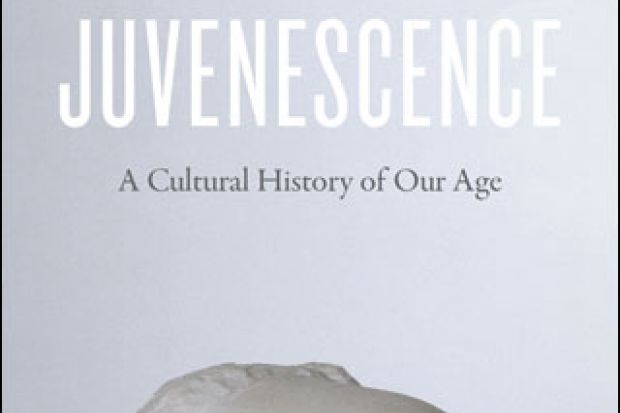Inside every historian of culture, there lurks a magus waiting for the moment of parturition. In the case of Robert Pogue Harrison, the voice of the magus has resounded more than once, never to better effect than in his admirable meditation, homily and loving prose-poem Gardens: An Essay on the Human Condition. In this new book he reaches for a much vaguer, more pervasive theme: “yoof”, as they say, which is to say not only the astonishing fact, visible on any street in the rich countries of the world, that today’s 70-year-old looks like yesterday’s 50-year-old, but also that an innate youthfulness in our times is not just how the police appear but is apparent and penetrative in every aspect of the age. The deep puzzle, if one is to avoid the windiness blowing in great gusts on the heights of such abstraction, is to find a style – a style in its strongest mien – in which to generalise and with which to pierce the reader’s heart.
Harrison veers a bit uneasily in this search, and Heidegger, the boozy old beggar, only floats him on such winds as these: “time’s disclosive dynamism has its source in Dasein’s finite temporality”. However, he does better than this with the help of T. S. Eliot’s Little Gidding and Nietzsche’s The Gay Science, seeking bravely for the point of balance that all civilisations must find if they are to last, between the shock of the new (here in Harrison’s neologism borrowed from evolution theory, “neotony”) and the succour of the past.
His moral lessons on the necessary equivalence of crazy youth and senescent wisdom display a wonderful exoticism, ranging from an Italo Calvino story about an albino gorilla to the horrifying myth from prehistoric Greece about the castration of Uranus and the blood-dimmed tide of the Furies that were his offspring. Each of his startling and fearful examples is turned expertly to hand, and warns our age against the exhilarating drunkenness of its juvenescence and its loss of a more gradual aetiology.
Giambattista Vico is Harrison’s prophet, as well he might be, and his three ages of man – or rather, Vico’s three stages of history – from the divine via the heroic to the legal (his successor might have said, the corporate) are firmly distinct but also interpenetrative. The difficult thing is for each epoch to mingle all three in a benign but seething speech. Modernity is not doing this well. Harrison resists, to his credit, crying doom upon his days. He dismisses, with a flourish, the idea that difference is all-powerful, and commends the juvenescent alikeness of all world cultures. Christ is credited with turning childlike innocence into the glory of possibility, and Kant with making trust the prime civic virtue.
This move, by sometimes subterranean connections, brings our man to a muted celebration anticipated by e. e. cummings, although without citation. “Next to of course God America I love thee”, Harrison might say with the poet, and while remarking that “genuine newness entails rejuvenation”, he claims, without sanctimony, that “Americanism…finds ways to tap into the deepest layers of the neotonic substrate of the collective psyche”.
If by this stage Harrison’s unfortunate lapses into (I speak sympathetically) pomposity and bathos – “All we know for sure is that we are at once strangely young and immensely old” – disfigure the book, it is nonetheless more just and appreciative to salute his boldness and big-heartedness in trying to speak up and for the human condition in these bewildering days.
Juvenescence: A Cultural History of Our Age
By Robert Pogue Harrison
University of Chicago Press, 224pp, £17.50
ISBN 9780226171999 and 72040 (e-book)
Published 14 January 2015
Register to continue
Why register?
- Registration is free and only takes a moment
- Once registered, you can read 3 articles a month
- Sign up for our newsletter
Subscribe
Or subscribe for unlimited access to:
- Unlimited access to news, views, insights & reviews
- Digital editions
- Digital access to THE’s university and college rankings analysis
Already registered or a current subscriber?





